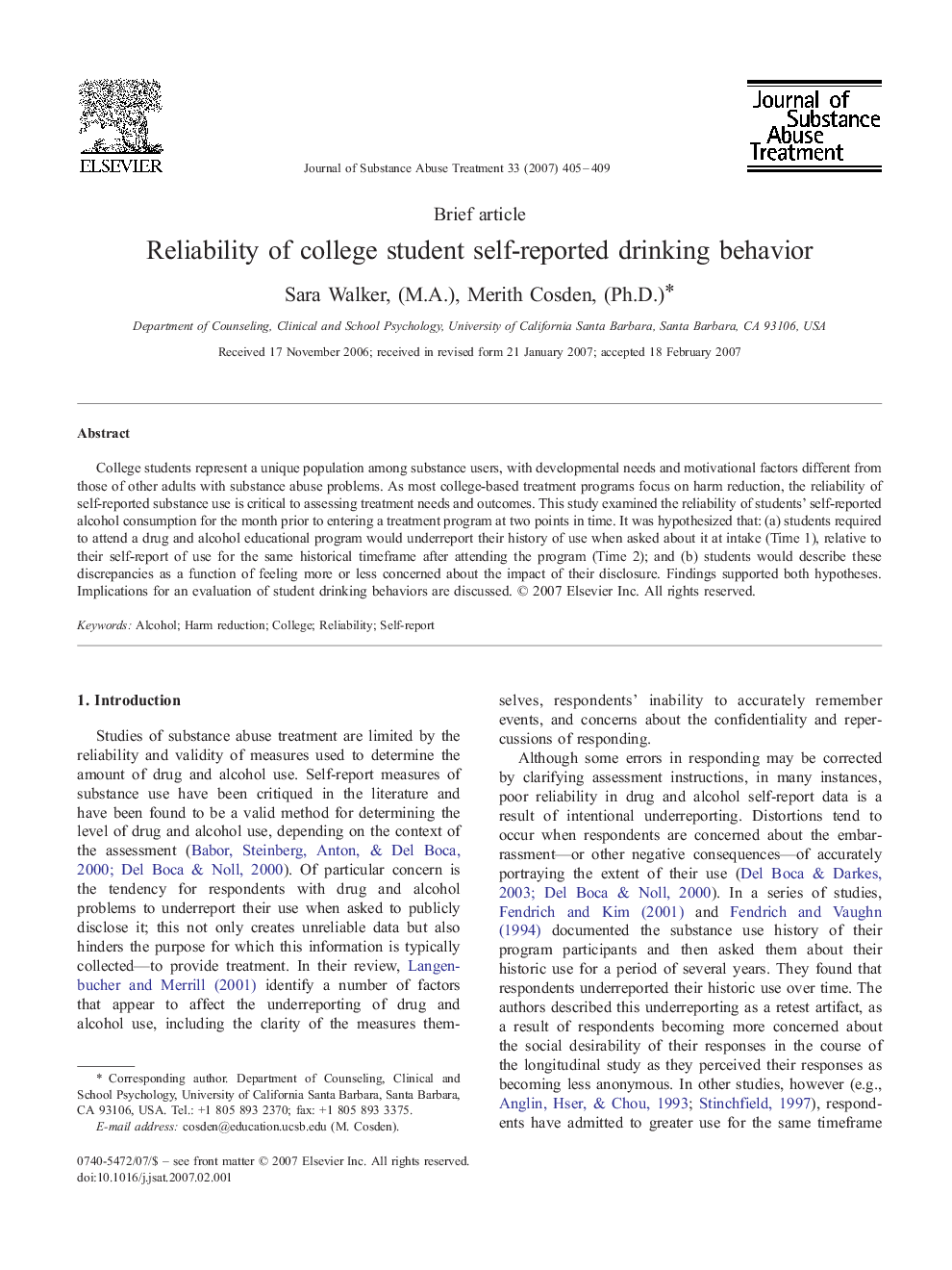| Article ID | Journal | Published Year | Pages | File Type |
|---|---|---|---|---|
| 330078 | Journal of Substance Abuse Treatment | 2007 | 5 Pages |
College students represent a unique population among substance users, with developmental needs and motivational factors different from those of other adults with substance abuse problems. As most college-based treatment programs focus on harm reduction, the reliability of self-reported substance use is critical to assessing treatment needs and outcomes. This study examined the reliability of students' self-reported alcohol consumption for the month prior to entering a treatment program at two points in time. It was hypothesized that: (a) students required to attend a drug and alcohol educational program would underreport their history of use when asked about it at intake (Time 1), relative to their self-report of use for the same historical timeframe after attending the program (Time 2); and (b) students would describe these discrepancies as a function of feeling more or less concerned about the impact of their disclosure. Findings supported both hypotheses. Implications for an evaluation of student drinking behaviors are discussed.
